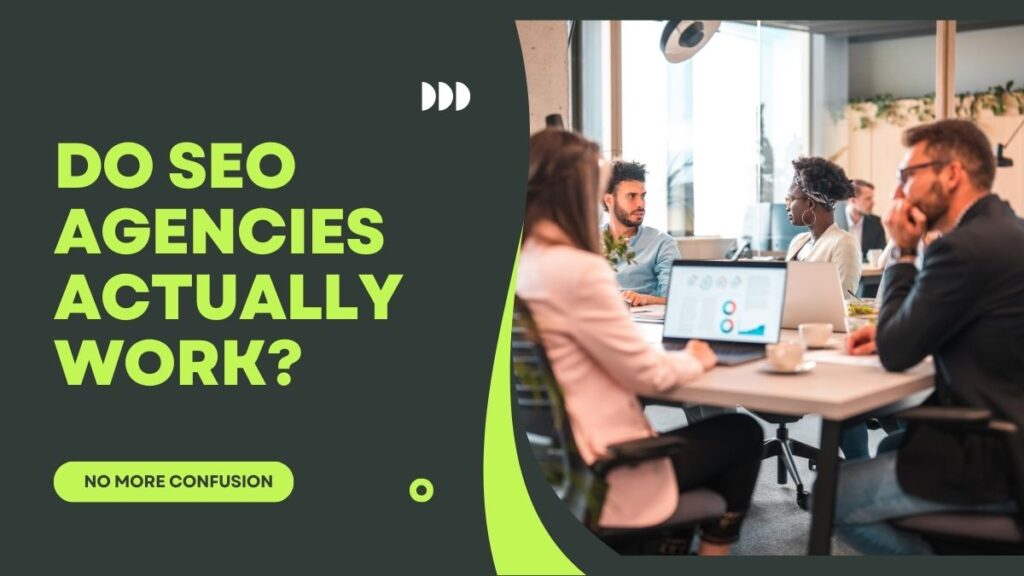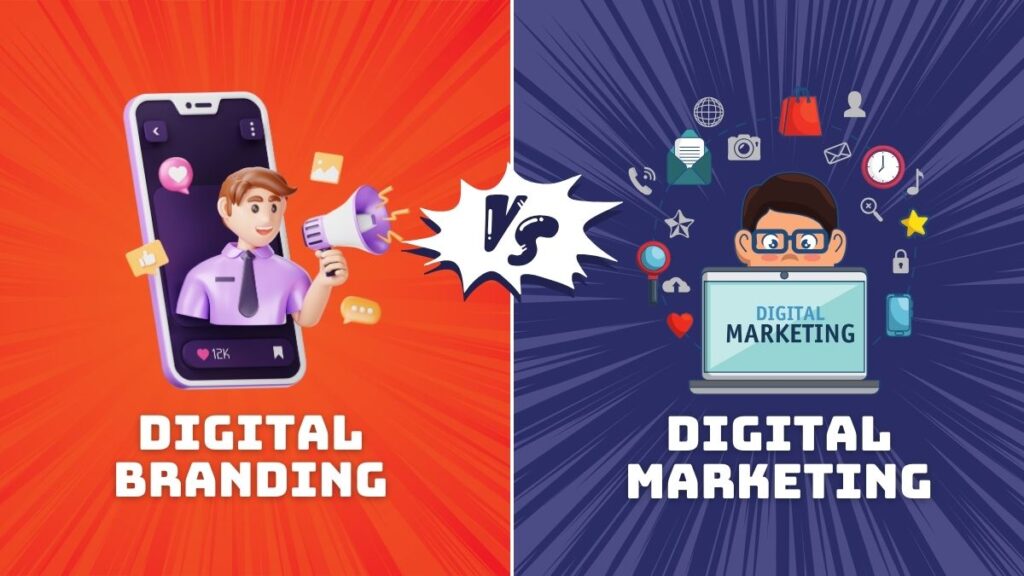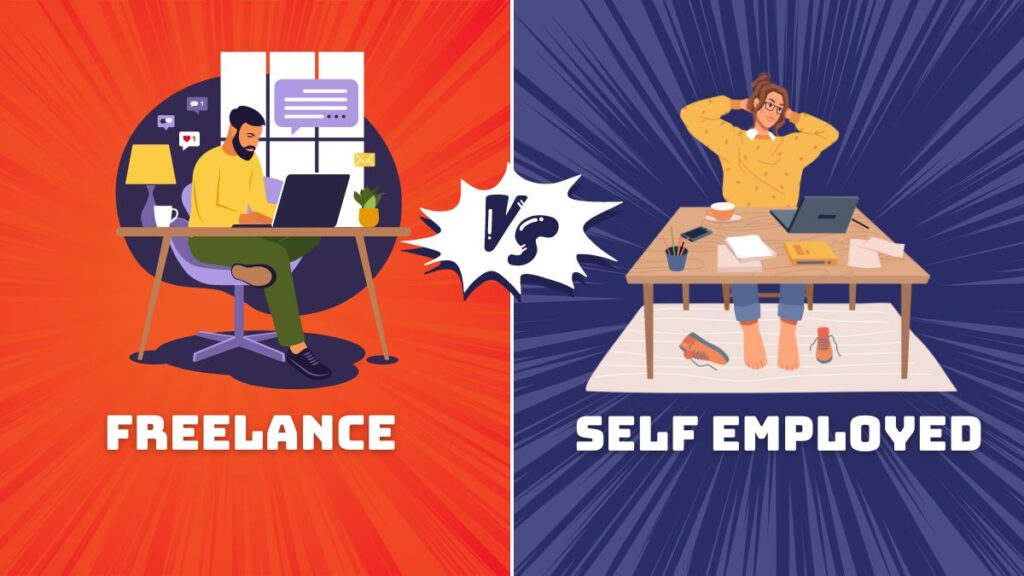Wondering do SEO agencies actually work? Learn how they can help improve your website’s ranking, drive traffic, and boost your business’s online visibility with effective strategies.
Imagine your website is a store. If people can’t find it, no one will buy anything. SEO agencies are like signs that guide customers to your door. But do they actually work?
With most online searches starting on Google, being at the top can really help your business. But is paying for an SEO agency the right choice, or a waste of money?
In this article, we’ll look at what SEO agencies do, how they can help, and their downsides. We’ll also explore other ways to improve your rankings. Let’s see if hiring an SEO agency is worth it!
Do SEO agencies actually work?
Curious if SEO agencies really deliver results? Let’s explore whether they’re worth the investment and how they can help boost your online presence.
The Case for SEO Agencies: Unlocking Hidden Potential
This is where SEO agencies come in. They act like expert captains, helping you steer your business in the right direction. Here’s why many businesses trust SEO agencies:
Expertise and Specialized Knowledge
SEO is constantly changing, like the weather at sea. Google updates its algorithms regularly, and SEO agencies keep up with these changes. They know how to adjust your website to match the latest trends and best practices.
Example: Companies like Moz stay on top of these changes. Their team of experts makes sure their strategies evolve with the latest SEO trends, helping businesses stay visible online.
Access to Advanced Tools and Resources
SEO isn’t just about guesswork—it’s about using data to make informed decisions. Agencies have access to powerful tools like SEMrush and Ahrefs. These tools help track competitors, analyze keywords, and find opportunities to improve your website’s performance.
Real-life Example: Airbnb used SEO tools to monitor competitors and adjust their content strategy, which helped them rank higher and attract more users.
Dedicated Resources and Consistent Effort
SEO is a long-term game. It requires constant attention to keep improving your rankings. When you hire an SEO agency, you get a dedicated team that works on your business every day. They continually tweak and improve your strategy to ensure you stay on track.
Real-life Example: Zappos, a well-known online retailer, relied on SEO experts to maintain its strong organic search presence. The agency’s consistent work paid off in the form of higher traffic and sales over time.
Data-Driven Strategies and Measurable Results
SEO gives you clear, measurable results. SEO agencies track key metrics like website traffic, keyword rankings, and conversions. They use this data to show how their efforts are paying off.
Real-life Example: Backlinko increased its organic traffic by over 100% using data-driven SEO strategies. They consistently refined their approach based on performance data, leading to steady growth.
Handling Complex Campaigns
SEO involves more than just choosing the right keywords. It includes improving your website’s content, building backlinks, and fixing technical issues. SEO agencies manage all of these aspects to ensure your website improves across the board.
Real-life Example: HubSpot worked with SEO experts to optimize various aspects of their website, from blog content to technical structure, which helped them attract more inbound leads.
The Case Against SEO Agencies: Pitfalls to Watch For
While SEO agencies can help, not every agency is perfect. There are some risks you need to consider before making a decision:
Overpromising and Under-Delivering
SEO is a long-term process. If an agency promises to get you to #1 on Google overnight, be cautious. SEO requires patience, and no one can guarantee instant results.
Real-life Example: A small business in the tech industry hired an agency that promised fast results, but after several months, the company saw little improvement. The agency wasn’t upfront about how long SEO takes.
High Costs with Uncertain ROI
SEO services can be expensive. Agencies often charge hundreds or even thousands of dollars per month, and it may take time to see a return on investment (ROI). For some businesses, this can be a tough pill to swallow.
Real-life Example: Yelp invested heavily in SEO, but it took a while to see measurable returns. For smaller businesses, that waiting period can feel like a risk.
Unethical or “Black Hat” Tactics
Some agencies use shortcuts to boost rankings, like keyword stuffing or buying low-quality backlinks. These “black hat” tactics may lead to quick results but can get you penalized by search engines, hurting your business in the long run.
Real-life Example: JC Penney used black-hat tactics like buying backlinks, which led to a Google penalty. Their rankings dropped, and it took months to recover.
Misaligned Expectations and Communication Gaps
Clear communication is key. SEO agencies often focus on things like keyword rankings and traffic, while businesses may be more concerned with increasing sales. Without good communication, you might feel frustrated if SEO doesn’t directly result in higher revenue.
Real-life Example: A local restaurant hired an SEO agency, but the agency focused on increasing traffic instead of converting that traffic into customers. The restaurant was disappointed when traffic increased but sales didn’t follow.
Factors that Influence Success: A Recipe for Positive Results
Getting good results from SEO is like baking a cake—you need the right ingredients. Several factors come together to make sure your SEO campaign is a success. Let’s break down the key ingredients:
The Right SEO Agency and Team
The team handling your SEO makes all the difference. If they know your industry, stay updated on SEO trends, and have a solid plan, your campaign is more likely to succeed. An experienced agency will create strategies tailored just for your business.
Example: Agencies like Neil Patel Digital have skilled teams that design strategies based on your specific goals, helping businesses see growth in their online presence.
Clear Goals and Expectations
It’s important to know what you want from your SEO campaign. Are you aiming for higher rankings or more traffic? Setting clear, achievable goals from the start ensures that both you and the agency are on the same page.
Example: A small local business may want to show up in local searches, while a larger company might be focused on driving more traffic from across the country. The clearer the goal, the easier it is to measure success.
Good Communication and Transparency
Regular updates and clear communication are key. Your agency should keep you informed on what’s being done, how things are going, and what’s working. Transparency helps you feel confident that the strategy is on track.
Example: Moz, a popular SEO tool provider, is known for being open with their clients, providing easy-to-understand reports and updates so businesses know exactly what’s happening with their SEO efforts.
Industry Competition
How competitive your industry is can impact your SEO results. If your industry is crowded, it may take longer to rank for certain keywords. But if you’re in a niche market, it might be easier to stand out.
Example: If you’re in a competitive industry like insurance, SEO will take more time and resources. But if you’re in a smaller, more specific industry, like local handmade jewelry, results could come faster.
Your Website’s Quality
Your website needs to be in good shape for SEO to work. If your site is slow, hard to navigate, or lacks useful content, it can hold back your SEO efforts. A well-designed, user-friendly website with great content is the foundation for SEO success.
Example: Airtasker, a platform for local services, saw SEO success after improving their website’s design and content, which helped them rank better and provide a better experience for users.
Must Check: is local seo important
Alternatives to SEO Agencies: Exploring Other Options
SEO agencies are a popular choice for many businesses, but they’re not the only option. Depending on your needs and budget, there are other ways to handle SEO. Let’s look at a few alternatives that might work better for you.
In-House SEO Teams
Having your own SEO team means full control over your strategy and direct communication. This works well if you want to manage everything in-house. But keep in mind, it can be expensive and time-consuming to hire and train a skilled team.
Example: Big companies like Zappos build their own SEO teams to stay aligned with their business goals, making it easier to adjust strategies quickly.
Pros:
Cons:
Freelancers
Freelancers are a flexible, more affordable option. They bring specific expertise to your SEO needs, like improving content or building links. This can be a good option if you don’t need a full-time team.
Example: Many small businesses hire freelancers from platforms like Upwork or Fiverr to handle SEO tasks without long-term commitment.
Pros:
Cons:
DIY SEO
If you’re on a tight budget, DIY SEO is a great option. There are plenty of online resources, guides, and tutorials to help you learn how to optimize your website. It’s a great way to get started without spending much money.
Example: Many small business owners and bloggers use resources like Moz and Yoast to learn and apply SEO on their own.
Pros:
Cons:
SEO Software and Tools
If you’re looking for data-driven insights, SEO tools can help you track your progress. Tools like SEMrush and Google Analytics provide all the information you need to make smarter SEO decisions.
Example: Tools like SEMrush help businesses track keywords and analyze competitors, making it easier to adjust your SEO strategy.
Pros
Cons:
How I Can Help: Real Results for Your Business?
When it comes to SEO, I’m here to offer more than just a basic approach. I create strategies that are tailored to your business, focusing on what really matters for your growth. Here’s how I can help:
Custom SEO Plans: Tailored to Your Goals
I take time to understand your business goals, whether it’s increasing traffic, improving rankings, or boosting sales. From there, I craft a strategy just for you.
Case Study: Local Restaurant A local restaurant needed help getting noticed online. I focused on local SEO, improving their Google My Business profile and using the right local keywords. In just 3 months, they saw:
This approach helped them attract more customers and stand out in their area.
SEO Audits: Fixing What’s Holding You Back
I start with a full audit of your website to identify issues, like slow load times or missing keywords, that could be holding you back.
Case Study: E-commerce Business An online store wasn’t turning visitors into customers. I found problems like slow loading pages and weak product descriptions. After fixing them:
Simple fixes made a big difference in their sales.
Content Strategy: Reaching the Right Audience
Great content is key to SEO success. I help businesses create content that not only ranks well but also connects with their audience.
Case Study: B2B Software Company A B2B company had a blog but wasn’t getting much traffic. I helped them improve their content and target the right keywords. In 6 months, their traffic doubled, bringing in more leads.
This strategy helped them reach the right people at the right time.
Ongoing Support: Keeping Your SEO on Track
SEO is an ongoing process, and I’m here to make sure your efforts continue to pay off. I monitor your website, track key metrics, and adjust strategies as needed.
Case Study: Online Retailer An online retailer saw steady growth thanks to my constant monitoring. I helped them:
By staying on top of things, I helped their business continue to grow.
Conclusion: So, Do SEO Agencies Really Work?
Yes, they do! SEO agencies can be great for boosting your rankings and getting more traffic, but success depends on choosing the right agency, having clear goals, and managing expectations.
Key Takeaways
Still unsure? If you want a customized SEO plan for your business, I’m here to help! Let’s chat and figure out how we can improve your online presence.
Ready to grow? Contact me today and let’s get started!


